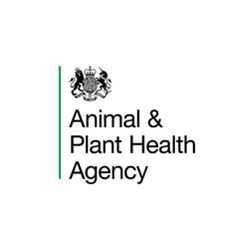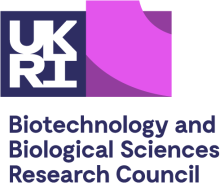

Partners
Wessex One Health (WOH) aims to bridge the gap between biomedical and veterinary infection training to help combat the risks of spillovers and zoonoses. We combine the expertise of our academic partners in infection biosciences across all classes of pathogens, and our major UK institute partners with national capability for working on high consequence pathogens.
University of Surrey

Infection and immunity is a major research strength within the School of Biosciences and the School of Veterinary Medicine at Surrey, where the research strategy is designed to implement a One Health One Medicine vision, recognising that the health and welfare of people, animals and the environment are interconnected.
Combined research strength in the two Schools encompass virus, bacterial and parasite pathogens such as respiratory and vector-borne viruses, human and bovine mycobacterial infections, cholera and pathogenic enterobacteria, and intestinal parasites. Areas of research include host-pathogen interactions, innate and acquired immunity, antimicrobial resistance and epidemiological modelling of transmission. Interdisciplinary research in infection biosciences is widely promoted at Surrey particularly at the interface with physical sciences and our AI Institute.
State-of-the-art facilities include confocal, super-resolution and high-throughput microscopy, flow cytometry, single-cell technologies, proteomics and high containment facilities.
University of Sussex

The University of Sussex (School of Life Sciences and Brighton and Sussex Medical School) has research strengths in molecular virology and bacteriology, epidemiology and modelling of transmission, antigenicity of viral zoonoses, neglected tropical diseases, global infections, and the role of infections in autoimmune and inflammatory diseases. We translate our discoveries into real-world impact on human and animal health, agriculture, and conservation policy. Our work on new treatments is facilitated by our Sussex Drug Discovery Centre through approaches which include structure-led drug discovery, library screening and medicinal chemistry.
Our state-of-the-art facilities include X-ray crystallography, cryogenic electron microscopy, biological imaging and biophysics. This breadth of expertise facilitates interdisciplinary and multi-scale research, spanning molecular mechanisms to ecosystem-level studies. Strong industrial partnerships, particularly in medicinal chemistry and sustainable agriculture, further enhance the University’s position as a leader in One Health research and innovation.
University of Exeter

The University of Exeter is a global leader in biological research with high-impact research spanning developmental biology through to ecosystem ecology. Included in this portfolio of research is the Medical Research Council Centre for Medical Mycology (MRC CMM). The MRC CMM is one of the largest groupings of medical mycology expertise globally and is internationally recognised for its pioneering work addressing all aspects of fungal infection. MRC CMM discoveries are advancing our limited understanding of the impact of the fungal kingdom on human health and developing innovative approaches to treat and control life-threatening fungal disease.
This bioscience research capacity at Exeter is complemented by the strong collaborative links with the University of Exeter Medical school and the associated NIHR Biomedical Research Centre. Combined these research groupings, the supporting cutting-edge facilities and a culture of interdisciplinary collaboration make the University of Exeter an exciting and impactful centre for biomedical research.
Animal and Plant Health Agency (APHA)

Animal Plant and Health Agency (APHA) works to safeguard animal and plant health for the benefit of people, the environment and the economy. Our research provides scientific evidence that allows us to provide expert advice and supports policy development for the government, devolved administrations, the European Union, United Nations Food and Agriculture Authority (FAO), the World Organisation for Animal Health (WOAH) and the World Health Organisation (WHO) in our capacity as international reference centre for a large range of diseases.
Staff from APHA also work with academia, industry, farmers, vets and managers in the field and undertake surveillance activities to detect and respond to exotic diseases, and to identify and assess new and emerging diseases in livestock and wildlife.
APHA employs around 3,000 staff based around at various sites around Great Britain. Our employees have a range of roles to safeguard animal and plant health for the benefit of people, the environment and the economy. The roles include including scientists, veterinarians and health inspectors, as well as technical and administrative staff, who work at our network of laboratories, veterinary investigation centres, field service offices, customer service centres and ports across the UK.
UK Health Security Agency (UKHSA)

UK Health Security Agency (UKHSA) prevents, prepares for and responds to infectious diseases, and environmental hazards, to keep all our communities safe, save lives and protect livelihoods.
They provide scientific and operational leadership, working with local, national and international partners to protect the public’s health and build the nation’s health security capability.
UKHSA is an executive agency, sponsored by the Department of Health and Social Care.
Defence Science and Technology Laboratory (DSTL)

The Defence Science and Technology Laboratory (DSTL) is the government laboratory for defence and security research and advice. DSTL has a national facility for high containment microbiology and undertakes research on all aspects of high consequence infectious diseases of defence and security concern.
DSTL has active research on disease detection, diagnosis, treatment and control; microbial forensics; bioinformatics and data science; mathematical modelling; and synthetic biology.
Pirbright

The Pirbright Institute is a BBSRC-funded institute with a mission to provide the UK with the capacity to predict, detect, understand, and respond to high-consequence livestock and zoonotic viral diseases to protect our food and economic security and improve the health and wellbeing of animals and people. We deliver applied and fundamental bioscience research on viruses, hosts and vectors, nationally and internationally through over 20 research groups leveraging unique high containment research and biosecurity facilities. This enables us to identify, contain and eradicate important viral diseases of livestock and those that spread from animals to people which threaten or occur in the UK.
